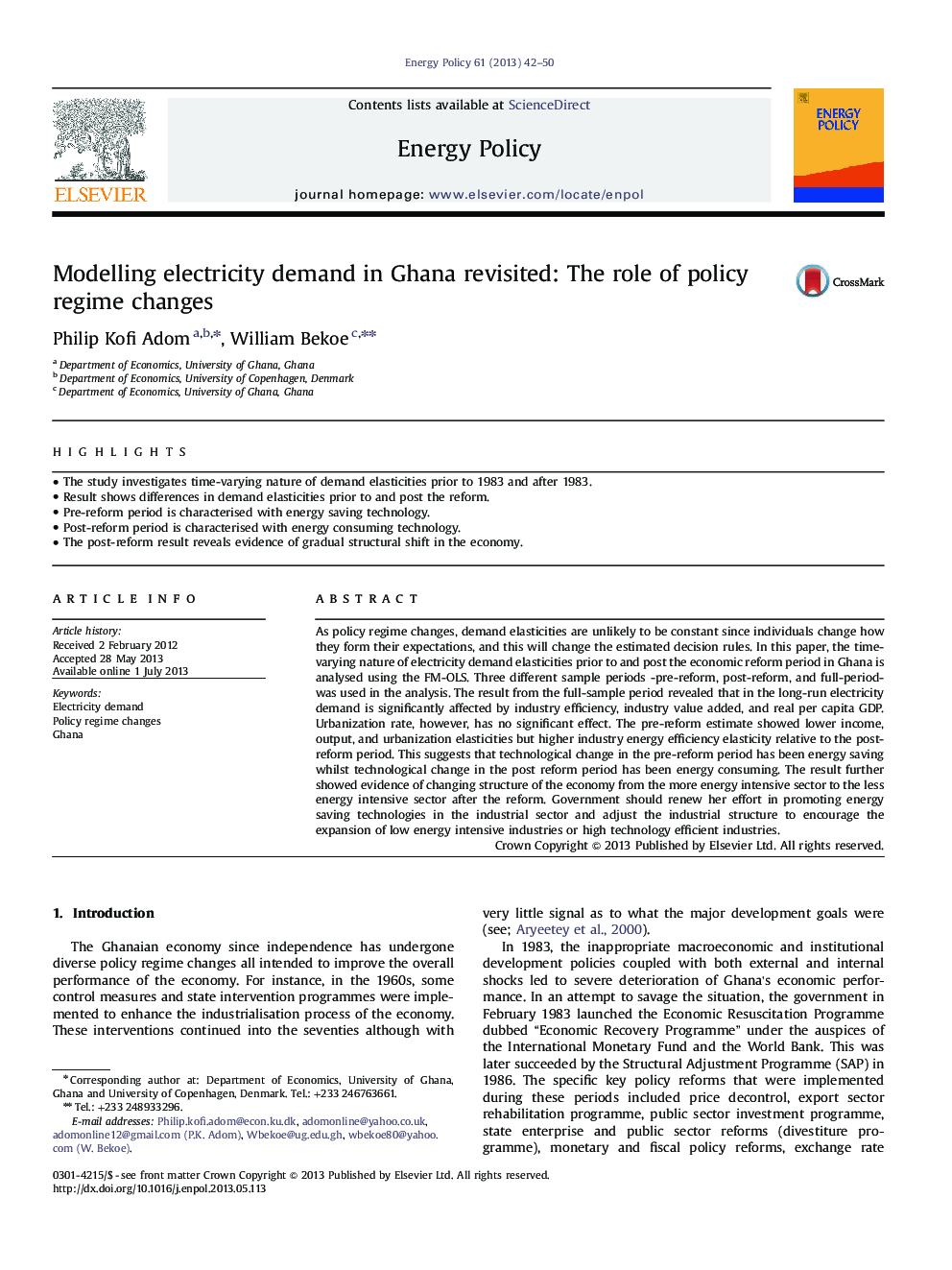| Article ID | Journal | Published Year | Pages | File Type |
|---|---|---|---|---|
| 7403890 | Energy Policy | 2013 | 9 Pages |
Abstract
As policy regime changes, demand elasticities are unlikely to be constant since individuals change how they form their expectations, and this will change the estimated decision rules. In this paper, the time-varying nature of electricity demand elasticities prior to and post the economic reform period in Ghana is analysed using the FM-OLS. Three different sample periods -pre-reform, post-reform, and full-period- was used in the analysis. The result from the full-sample period revealed that in the long-run electricity demand is significantly affected by industry efficiency, industry value added, and real per capita GDP. Urbanization rate, however, has no significant effect. The pre-reform estimate showed lower income, output, and urbanization elasticities but higher industry energy efficiency elasticity relative to the post-reform period. This suggests that technological change in the pre-reform period has been energy saving whilst technological change in the post reform period has been energy consuming. The result further showed evidence of changing structure of the economy from the more energy intensive sector to the less energy intensive sector after the reform. Government should renew her effort in promoting energy saving technologies in the industrial sector and adjust the industrial structure to encourage the expansion of low energy intensive industries or high technology efficient industries.
Keywords
Related Topics
Physical Sciences and Engineering
Energy
Energy Engineering and Power Technology
Authors
Philip Kofi Adom, William Bekoe,
